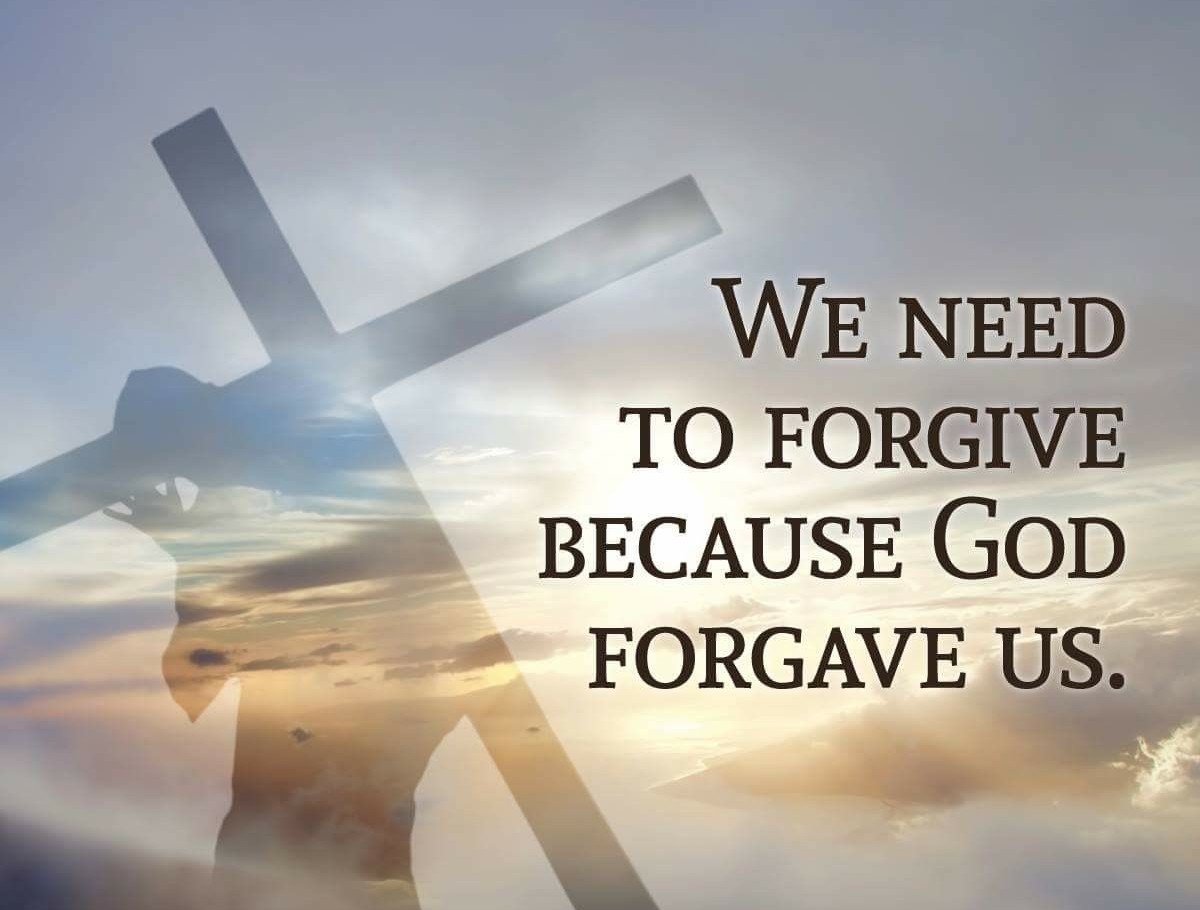Dealing with Hurt: Our Struggle with Unforgiveness. The Brother's Egypt Encounter
2025-07-25 | Spirituality
Description
Dealing with Hurt: Our Struggle with Unforgiveness. The Brother's Egypt Encounter
(Fr. Paul Ikeh, C.Ss.R)
Introduction
Recall that Joseph's brothers planned to to kill him, but eventually sold him off into slavery
regardless of his soulful pleas. This they did out of jealousy and anger because they felt
disrespected by Joseph's dreams (cf. Genesis 37:1-11).
Genesis 42 recounts the dramatic encounter between Joseph (slave boy turned governor of
Egypt) and those same brothers of his (now desperate for grains to survive the severe famine).
This dramatic encounter took place about 22 years after Joseph had been sold into slavery
(Genesis 41:46; Genesis 41: 53-54; & 45:11 ). This chapter is indeed filled with weighty emotions
and recall of past betrayal.
The Pain of the Past
Joseph's journey reveals the deep scars inflicted by betrayal especially from those closest to us.
The pain of betrayal, especially from lived ones, is soul-deep-an experience many of us can
relate to. Joseph’s story is a powerful lens through which we can explore the emotional
complexity of hurt and unforgiveness. Joseph was deeply wounded by those he called brothers,
by those he joyfully took food to while they tended the flock at Dothan. Joseph was betrayed by
his own flesh and blood, sold into slavery, and left for dead.
Imagine the emotional and psychological trauma the seventeen year old Joseph (Genesis 37:2)
would have gone through in the belly of the well into which he had been thrown and therein
hearing the conversation among his brothers to have him killed and eventually agreeing to sell
him into slavery. Imagine the so many thoughts that would have been firing riot through his
mind, the fears, anxiety, uncertainty:
Why would my own brothers treat me thus devilishly?
What would become of me?
What would become of my dad and younger brother? How would they survive?
God aren't you going to do something?
The Food Irony
Severe famine had swept through the land of Canaan as it did other parts of the world. The
desire for food and survival ultimately led Joseph's brothers to Egypt, unbeknownst to them,
bowing to the authority of the very same person whom they had treated wickedly when he had
brought them food at Dothan. Here now were Joseph's brothers before him. The same brothers
who rejected Joseph’s offering of food at Dothan now kneel before him in Egypt, pleading for
grain to survive. Here now kneeling before Joseph in his territory were his brothers over whom
he had authority to sentence, imprison, or execute. Joseph, once powerless, now holds authority
to imprison or to pardon.
On seeing his brothers, what emotions had Joseph to deal with? What thoughts raced through
his mind? Perhaps, Joseph had to wrestle with his own pain recalling the traumatic and horrific
event of that inglorious day. Perhaps, he recalled their collective and individual roles in the terror
of that day. Perhaps, the emotions were overwhelming. Perhaps also there was the mix of joy
seeing his brothers again and hearing of the welfare of his father and younger brother, Benjamin.
The Inner Struggle with Unforgiveness
This perhaps mirrors our own story, our struggle. The hesitation to let go is a reality we struggle
with. Perhaps also, we get angry and upset when we are asked to let go. It could perhaps feel
unfair to be asked to let go even much so when the other party doesn't show any remorse for
his or her actions. Yes, forgiveness can be difficult when we are hurting. We may build
emotional walls, test the others’ sincerity, or even seek subtle revenge.
What thoughts run through your mind and/or what feelings come up on you when you encounter
someone who had grievously wronged you?
Unforgiveness is not just a moral issue. It is also a spiritual and emotional burden because it
poisons our peace, keeping us tethered to the pain of the past. It clouds our judgment and
distorts our identity thereby keeping us fixated as victims rather than victors.
The Path Toward Healing
Joseph’s journey shows us that forgiveness is a process, not a moment. Forgiveness does not
necessarily mean it must be instantaneous, at the snap of the finger. It many times require time
to process things while not slamming the door close.
Joseph wept in private (Genesis 42:24), showing that forgiveness doesn’t mean forgetting the
pain. Forgiveness doesn’t necessarily erase the pain, rather it is refusing to let pain rule.
Forgiveness is a decision in favor of a choice not to be ruled by the pain and bitterness of
unforgivenness. Therefore, in forgiveness, I freely surrender the right to hurt others in response
to the way they have hurt me. It is a choice to release the right to retaliate, embracing peace
instead.
Joseph didn't rush into reconciliation. Temporally, he imprisoned his brothers and it would seem
not so much out of bitterness, but a much bigger plan for a family reunion. This temporal
imprisonment may not preclude the emotions and recall of the wrong done him. Perhaps also,
Joseph's healing and strength to forgive (Genesis 45:15) was facilitated by his understanding of
the bigger picture and how each part fits the whole (Genesis 45:7ff). Such heavenly lens often
fuels our strength to forgive, that is, seeing the larger tapestry woven by divine hands.
A Personal Reflection
Who do you still have imprisoned within the gates of your hurt, the walls of your pain? Maybe, it
is time to open the gate as well as bring down the walls and set your offender free as well as
yourself.
Conclusion
Forgiveness doesn’t always mean reconciliation, but it does mean freedom. Joseph’s story
highlights forgiveness as opening the door to healing, restoration, and even redemption. Let
Joseph’s story inspire the courage to begin that journey.
(Fr. Paul Ikeh, C.Ss.R)
regardless of his soulful pleas. This they did out of jealousy and anger because they felt
disrespected by Joseph's dreams (cf. Genesis 37:1-11).
Genesis 42 recounts the dramatic encounter between Joseph (slave boy turned governor of
Egypt) and those same brothers of his (now desperate for grains to survive the severe famine).
This dramatic encounter took place about 22 years after Joseph had been sold into slavery
(Genesis 41:46; Genesis 41: 53-54; & 45:11 ). This chapter is indeed filled with weighty emotions
and recall of past betrayal.
The Pain of the Past
Joseph's journey reveals the deep scars inflicted by betrayal especially from those closest to us.
The pain of betrayal, especially from lived ones, is soul-deep-an experience many of us can
relate to. Joseph’s story is a powerful lens through which we can explore the emotional
complexity of hurt and unforgiveness. Joseph was deeply wounded by those he called brothers,
by those he joyfully took food to while they tended the flock at Dothan. Joseph was betrayed by
his own flesh and blood, sold into slavery, and left for dead.
Imagine the emotional and psychological trauma the seventeen year old Joseph (Genesis 37:2)
would have gone through in the belly of the well into which he had been thrown and therein
hearing the conversation among his brothers to have him killed and eventually agreeing to sell
him into slavery. Imagine the so many thoughts that would have been firing riot through his
mind, the fears, anxiety, uncertainty:
Why would my own brothers treat me thus devilishly?
What would become of me?
What would become of my dad and younger brother? How would they survive?
God aren't you going to do something?
The Food Irony
Severe famine had swept through the land of Canaan as it did other parts of the world. The
desire for food and survival ultimately led Joseph's brothers to Egypt, unbeknownst to them,
bowing to the authority of the very same person whom they had treated wickedly when he had
brought them food at Dothan. Here now were Joseph's brothers before him. The same brothers
who rejected Joseph’s offering of food at Dothan now kneel before him in Egypt, pleading for
grain to survive. Here now kneeling before Joseph in his territory were his brothers over whom
he had authority to sentence, imprison, or execute. Joseph, once powerless, now holds authority
to imprison or to pardon.
On seeing his brothers, what emotions had Joseph to deal with? What thoughts raced through
his mind? Perhaps, Joseph had to wrestle with his own pain recalling the traumatic and horrific
event of that inglorious day. Perhaps, he recalled their collective and individual roles in the terror
of that day. Perhaps, the emotions were overwhelming. Perhaps also there was the mix of joy
seeing his brothers again and hearing of the welfare of his father and younger brother, Benjamin.
The Inner Struggle with Unforgiveness
This perhaps mirrors our own story, our struggle. The hesitation to let go is a reality we struggle
with. Perhaps also, we get angry and upset when we are asked to let go. It could perhaps feel
unfair to be asked to let go even much so when the other party doesn't show any remorse for
his or her actions. Yes, forgiveness can be difficult when we are hurting. We may build
emotional walls, test the others’ sincerity, or even seek subtle revenge.
What thoughts run through your mind and/or what feelings come up on you when you encounter
someone who had grievously wronged you?
Unforgiveness is not just a moral issue. It is also a spiritual and emotional burden because it
poisons our peace, keeping us tethered to the pain of the past. It clouds our judgment and
distorts our identity thereby keeping us fixated as victims rather than victors.
The Path Toward Healing
Joseph’s journey shows us that forgiveness is a process, not a moment. Forgiveness does not
necessarily mean it must be instantaneous, at the snap of the finger. It many times require time
to process things while not slamming the door close.
Joseph wept in private (Genesis 42:24), showing that forgiveness doesn’t mean forgetting the
pain. Forgiveness doesn’t necessarily erase the pain, rather it is refusing to let pain rule.
Forgiveness is a decision in favor of a choice not to be ruled by the pain and bitterness of
unforgivenness. Therefore, in forgiveness, I freely surrender the right to hurt others in response
to the way they have hurt me. It is a choice to release the right to retaliate, embracing peace
instead.
Joseph didn't rush into reconciliation. Temporally, he imprisoned his brothers and it would seem
not so much out of bitterness, but a much bigger plan for a family reunion. This temporal
imprisonment may not preclude the emotions and recall of the wrong done him. Perhaps also,
Joseph's healing and strength to forgive (Genesis 45:15) was facilitated by his understanding of
the bigger picture and how each part fits the whole (Genesis 45:7ff). Such heavenly lens often
fuels our strength to forgive, that is, seeing the larger tapestry woven by divine hands.
A Personal Reflection
Who do you still have imprisoned within the gates of your hurt, the walls of your pain? Maybe, it
is time to open the gate as well as bring down the walls and set your offender free as well as
yourself.
Conclusion
Forgiveness doesn’t always mean reconciliation, but it does mean freedom. Joseph’s story
highlights forgiveness as opening the door to healing, restoration, and even redemption. Let
Joseph’s story inspire the courage to begin that journey.
